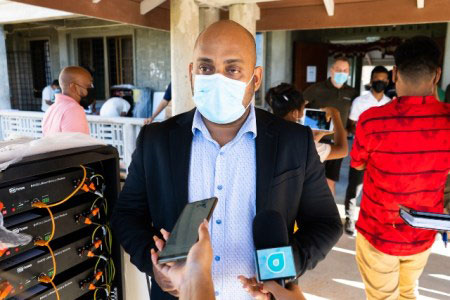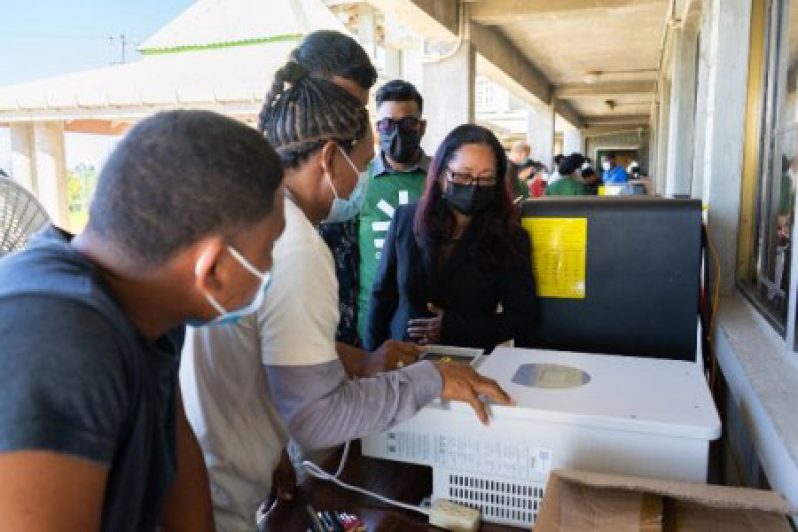THIRTY-FIVE men and women from hinterland communities from Regions One to 10, on Thursday afternoon, completed a four-day photovoltaic technician training exercise, facilitated by Danish sustainable energy company GSOL, in a bid to bridge the digital gap between hinterland and coastal communities.
The training, a collaborative effort between the Office of the Prime Minister’s Industry and Innovation Unit, and the Ministry of Amerindian Affairs, kicked off on Monday and saw participants learning how to install, maintain and troubleshoot the solar PV (photovoltaic) system, which converts the sun’s radiation, in the form of light, into usable electricity.
“They have learned, basically, how to completely assemble the entire system. They have learned basics on battery, and invertor and Solar PV, so that when they come out, they can safely assemble the battery, they can safely connect the battery to the invertor, and they can programme the invertor directly to run normally, shut down when it’s supposed to, and restart when it’s supposed to. If there is an available grid, they have also learned how to connect to this grid, and disconnect from the grid,” Business Development Engineer of GSOL, Oscar Ditlevsen, who assisted in the training process, explained, on the side-lines of the event.
The training falls under the OPM’s Information Communication Technology (ICT) Access and Services for Hinterland Poor and Remote Communities Project, and is part of a much bigger project for connectivity, totalling 17M USD.

The project was conceptualised in 2014 by the then PPP/C administration, and is designed to provide government services to Guyanese in their own homes, particularly those in far-flung and rural communities.
Minister of Amerindian Affairs, Pauline Sukhai, in her closing remarks at the ceremony, stated that hinterland communities would no longer be denied connectivity, and noted that the participants would return to their communities with valuable knowledge, which will also contribute to the country’s overall development.
“We are excited to ensure that this project is executed and executed very quickly. It will bring quite a lot of benefits to the hinterland and to those poor and remote communities across our country.
“The possibility exists that this project may also be able, at some point in time, to lay the foundation and the training for hinterland young people who need jobs and who, one day, may be employed within those sectors where jobs are outsourced to countries like ours.”
The project will also see some 200 ICT hubs being established across the 10 administrative regions.
Consult Coordinator on the project, Ronald Harsawack, said that, to ensure people are connected, there needs to be a stable energy source. As such, participants were trained in the field.
“We want to either rehabilitate or construct 200 hubs in those communities, we will retrofit those hubs to include 20 laptops, we will include a VSAT type satellite dish for internet connectivity. Our goal is to power the ICT hubs from the systems you see here today,” he told the Department of Public Information (DPI).
Harsawack stated that the project does not just stop at establishing ICT hubs in communities as it will also see persons being trained in computer literacy. Participants will be trained in computer operation, software application and Microsoft office, among other basic computer programmes.
Participants in the training programme hailed from Mabaruma, Matthew’s Ridge, Santa Rosa, the Essequibo Coast, Mainstay Lake, Santa Aratak Mission, Saint Cuthbert’s Mission, Moraikobai, among others.





.jpg)








